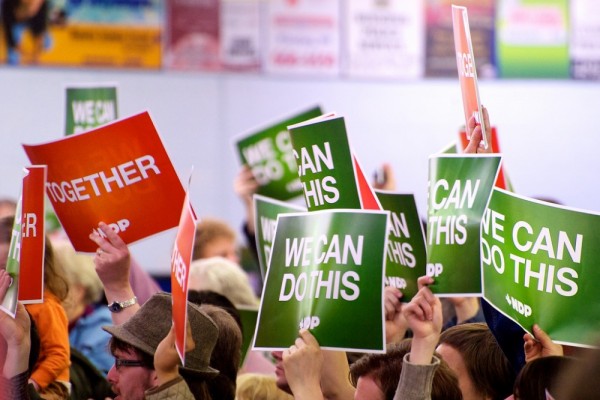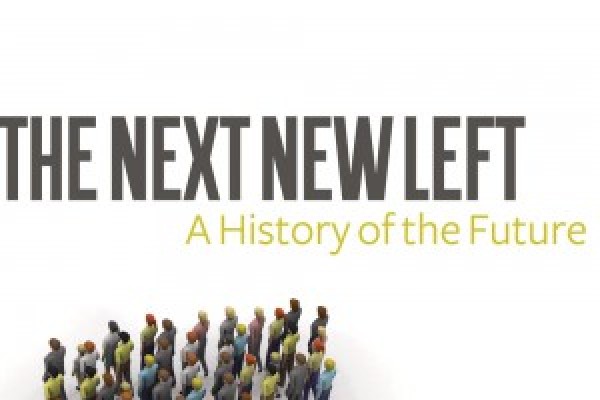Canada needs a federal community wealth building agenda
The high success rate, practicality, and fairness of cooperatives and worker-owned firms have been documented for centuries

The non-profit Kensington Market Community Land Trust (KMCLT) is promoting economic democracy and empowering the local community to address Toronto’s affordability crisis. Photo by Sandro Pehar/Instagram.
In the midst of a housing crisis, a coast to coast explosion of community land trusts are producing permanent sources of affordable housing. While our Big Five corporate banks drive rentier inequality and global climate change, credit unions like Vancity keep billions of dollars circulating locally under democratic community ownership. In the face of the multi-trillion dollar ‘Silver Tsunami’ of retiring entrepreneurs—almost none of whom have succession plans—a huge organizing push has at long last seen decent employee-ownership trust legislation cross on the finish line so that more companies can be saved through selling to their workers. And amidst a food affordability crisis, food experts are finally being properly platformed by the CBC as they call for policies to massively expand community-owned food cooperatives as an alternative to monopoly grocers.
In fact, the CBC piece was effusive. The government’s efforts to reduce monopoly power by luring foreign corporations was, according to these experts, “a waste of time.” Cooperatives had “demonstrated how to create an alternative to a monopoly more so than anywhere else in Canada.” They kept money circulating in their communities, reached places corporations didn’t—including northern Indigenous communities—have flourished where provincial governments have supported them, and could make a big dent within two years of a federal government program.
None of this is exactly news, but it is so rarely publicized and so contrary to neoliberal orthodoxy it appears as a shocking revelation. The high success rate, practicality, and fairness of cooperatives and worker-owned firms have in fact been documented for nearly two centuries. That’s why cooperatives alone quietly account for some $20 trillion of global assets. The evidence strongly suggests, as the food experts proclaim in their domain, that governments can simplify their job by turning to their own citizens and empowering them to have a stake in their companies. Yet cooperatives, worker-owned companies, community land trusts, and other practical works of economic democracy are often seen as disconnected one-off projects when they are seen at all.
As the recent slew of enormous corporate subsidies demonstrates, meanwhile, Canadian politicians do have an integrated vision of expensive job creation through top-down corporations, ones often characterized by absentee ownership and community abandonment. Marjory Kelly usefully labels the ethos underlying this status quo wealth supremacy: the institutionalized but illegitimate myths that make giving more wealth to the wealthy seem necessary and professional. Our homegrown democratic economic actors are working splendidly, but they are doing so on a treadmill as our elites accelerate a system of top-down domination—to the detriment of their own track record.
When we do connect these democratizing dots, however, we begin to see they are part of a clear overarching process called community wealth building. CWB is an accomplished method of economic development that considers how a range of assets with inclusive, local ownership provide both greater democracy and important economic multipliers. Not only is it a good idea to develop more such enterprises, but we can use what we already have in place to grow them and make full use of their benefits. For instance, our anchor institutions—large, locally-entrenched public and non-profit enterprises—can look to do more of their spending in their community and prioritize the best economic actors like living wage employers, community nonprofits, and cooperatives. This puts the benefits into the hands of many people living, working, and spending locally, so that money currently vanishing into the offshore tax havens of the wealthy instead circulates locally—often to the particular benefit of the marginalized and disadvantaged. Importantly, it also helps break the vicious race-to-the-bottom cycle in which we give ever more subsidies to footloose corporations owned by the already rich.
Over the last 20 years, CWB has massively expanded as a local strategy after powerful demonstrations in Cleveland, Ohio, and Preston, England, the latter of which has been named the most improved city and best place to raise a family in the United Kingdom. Today there are CWB initiatives in Chicago, Denver, Amsterdam, Sydney, and innumerable small and midsized communities around the world.
Recently, however, its appeal to larger levels of government has also become apparent. While CWB is generally focused at the municipal or even neighbourhood level, national and subnational governments can quickly play an impactful faciliatory role by publicizing the method, crafting favourable legislation like tax advantages for worker-owned firms, and creating centralized resources like grants, loans, and accounts of best practices that can be used by decentralized local partners. The past handful of years have gradually seen the Scottish government adopt CWB as core methodology towards their well-being and just transition objectives. This has included appointing the world’s first Minister of Community Wealth, and crafting resources for CWB that counties across the nation can use.
It makes perfect sense for Canada to do the same, and at a larger scale. Instead of another subsidy for a pasta factory, our Liberal-NDP supply and confidence government should announce its intention to support a wave of local democratization projects, including the expansion of food cooperatives, worker cooperatives, various employee-ownership schemes, community land trusts, and the development of sustainable procurement policies. This will empower communities across the nation to address the affordability crisis in the short-term, and build economies with greater resilience, opportunity, and environmental sustainability in the long-term.
It has long been the right thing to do, but never more so than now.
Colin Bruce Anthes is an artist, educator, and democratic economy organizer. Colin has been artistic director of two theatre companies, taught in five post-secondary institutions across Canada, and founded Community Wealth Candidates in 2021. He has been a contributor to theAnalysis.news since 2022.










